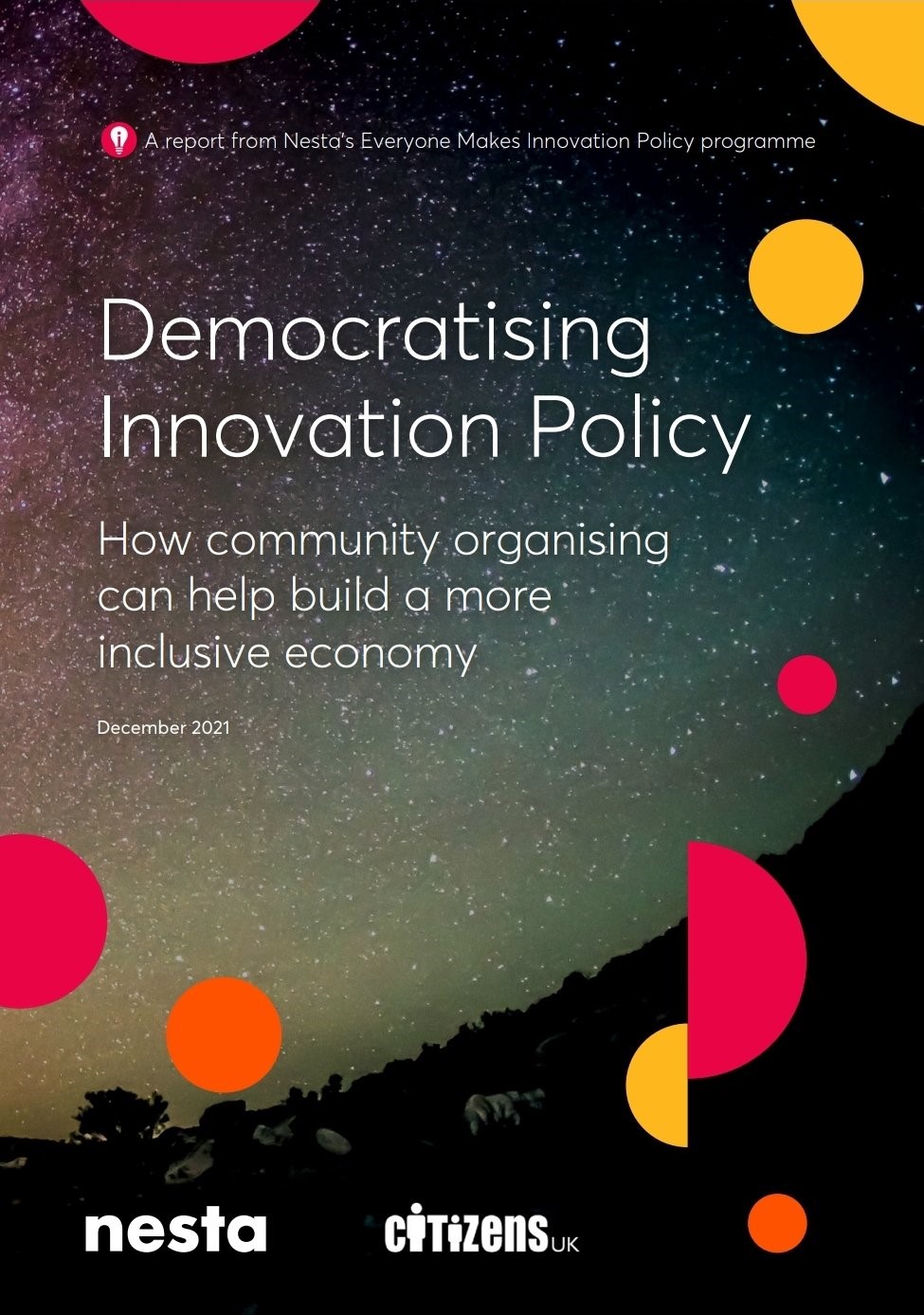Democratising Innovation Policy: a report from Nesta & Citizens UK
Posted on 01 Mar 2022 Categories: New democratic models, News, Reports, Tyne & Wear Citizens
by Rethinking Poverty

In December, Nesta and Citizens UK published their new report, Democratising Innovation Policy: How community organising can help build a more inclusive economy.
It states that innovation policy has ‘wide-ranging and profound effects on our lives … shaping how we work, communicate, manufacture goods and wage war, as well as how we respond to global threats such as climate change and pandemics’. However, these policies tend to be decided by ‘a small scientific and technocratic elite, with those most affected rarely involved’. Previous Nesta research found that while people think the public should have decision-making power, most believe they currently have none.
The report details Nesta’s partnership with Citizens UK, who are described as ‘the leading practitioners of community organising in the UK – a method that builds power amongst communities to campaign and win on issues of shared concern’, such as the work of Tyne & Wear Citizens. Nesta and Citizens UK worked together in East London and Birmingham ‘to work with member organisations to build a citizens’ agenda around local economic and industrial policy’.
Both projects showed how the community organising method enables different forms of participation by ‘addressing the balance of power on a local level’. It also creates links between decision-making institutions and communities, and ‘provides a way for communities to use their experience and knowledge to shape responses to innovation-related questions locally’.
The report identifies various ways in which community organising could be used to democratise innovation policy. They include local government improving the impact of place-based agendas, developing more inclusive procurement practices, and enhancing their awareness of emerging social issues. It also recommends universities developing research partnerships between community organisers, and innovation developments such as hubs and science parks improving community relationships and developing routes for local talent to access opportunities.
Read the full report here.
Posted on 01 Mar 2022 Categories: New democratic models, News, Reports, Tyne & Wear Citizens
